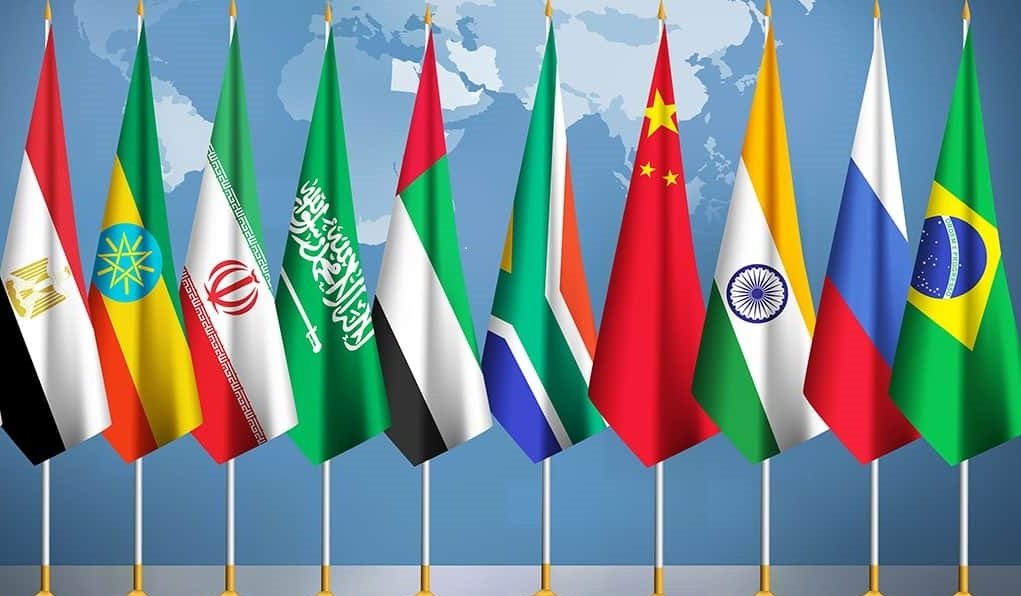MOSCOW. JULY 22, 2024. PIR PRESS. «Today, under the Russian Chairship, BRICS activities cover an impressive range of issues, including even very specialized ones. Still, economic and security issues remain the most important. And while the economic agenda is more or less obvious, BRICS cooperation in the field of security raises a whole set of thoughts and questions. Where exactly are the positions of the member countries close? Where can they successfully cooperate without harming the positive, consensual climate that has developed within the association over the years? And what, on the contrary, could become a stumbling block? With this report, we do not aim to provide a comprehensive answer to these burning questions. Our task is to provide food for thought by summarizing information on the dynamics of the positions of the member states and comparing these positions. And this way, through comparison, at least part of the questions may receive a clearer and more qualified answer. And the shape of those areas will begin to emerge where the prospects for security cooperation are obvious, and where they can be hardly seen or do not exist at all», – Dr. Vladimir Orlov, Founding Director of PIR Center, in the introduction for the report “International Security Issues in BRICS Agenda. Overview and Policy Recommendations.”
PIR Center is glad to announce the release of the report “International Security Issues in BRICS Agenda. Overview and Policy Recommendations,” authored by Mr. Sviatoslav Arov, PIR Center’s Research Fellow. This research paper is devoted to international security issues in the BRICS agenda. During its preparation, the key documents adopted by BRICS were studied. Particular emphasis was placed on the analysis of the official positions of the BRICS member states on nuclear nonproliferation and disarmament, as well as the attitudes of the BRICS members to the most burning international security issues: regional conflicts, the counter-terrorism, the Iranian nuclear program, the denuclearization of the Korean Peninsula, as well as cooperation in the field of nuclear energy and international information security.
For many years, PIR Center has been paying special attention to BRICS issues and conducted analytical activities in this area. It was positively responded to by the top authorities of the Russian Federation, not only by the expert community. For example, in the congratulatory address (in Russian) to the Founding Director of PIR Center, Dr. Vladimir Orlov, commemorating the 30th anniversary of PIR Center, the Minister of Foreign Affairs, H.E. Sergey Lavrov noted: “I am glad that the organization headed by you is keeping up with the times and expanding the research horizons. I would like to especially emphasize the attention paid to BRICS”.
It is also worth noting that there is a chapter devoted to BRICS in the Security Index Yearbook – a unique and comprehensive English-language research paper targeted at foreign readers and published by PIR Center and MGIMO University. In this chapter, H.E. Sergey Ryabkov, Deputy Minister of Foreign Affairs of the Russian Federation, the Russian BRICS Sherpa, in an interview, sheds light on Russia’s plans for Chairship year in the Group, as well as the top diplomat assesses the BRICS activities and explains the rapid popularity of the Ten.
The main outcomes from the report “International Security Issues in BRICS Agenda. Overview and Policy Recommendations”:
- BRICS does not perceive itself as a standalone institution in the international security. Addressing security issues at BRICS summits, the text of the final declarations always refers to the UN or other specialized organizations and forums as the main venue for general discussions and adoption of internationally recognized documents.
- Security issues are a solid basis for interaction between the BRICS countries. Simultaneously, the Group is perceived by its members as an important actor in the international arena, which is responsible for the development of international relations.
- Expansion of the BRICS international security agenda is an unlikely scenario, and an increase in the number of members of the Group would result in growing contradictions.
- BRICS cooperation in counter-terrorism is promising. The states of the Group share a similar approach to positioning the terrorist threat in the national security system; they prioritize the development of external contacts and recognize the need to consolidate the common efforts to combat international terrorism. However, in practice, they still have some disagreements on certain aspects of responding to terrorism.
- The BRICS countries are expected to converge on information security issues. With the new enlargement of the Group, technologically advanced countries have joined BRICS. They support the common desire for cooperation and the formation of norms in the field of information security. In the near future, the BRICS countries will focus on the gradual convergence of positions on the most sensitive issues of information security, as well as on increasing the level of trust in the digital space as a whole. However, due to the specifics of the sphere and the complicated international situation, this process can hardly be accelerated.
- Cooperation in nuclear energy between BRICS members is promising. Most BRICS countries recognize the importance of nuclear energy development, they pursue an active policy in this area, and some BRICS members are world leaders in the nuclear industry. Joint efforts within the BRICS framework can lead to a number of mutually beneficial results for all BRICS members.
- The possibility of involving states interested in joining the Group in BRICS cooperation mechanisms should be worked out. Such an approach would, firstly, allow for the formation of more inclusive formats of multilateral cooperation, which could then have a practical impact on decision-making within the framework of universal international institutions and formats. Secondly, the participation of the BRICS partner-states in cooperation mechanisms will allow for a more seamless and smooth integration into the BRICS formats in the future.
- The voice of the BRICS states is crucial to shaping the international order: without the involvement of BRICS countries, it is impossible to solve any critical global problems.
Moreover, PIR Center is implementing the project BRICS Potential for Global Peace and Security. Its goals are:
- Promoting a multilateral approach to world order, which underpins the work of the BRICS.
- Finding promising and priority areas for Russia’s security cooperation within the BRICS framework.
- Development of approaches and recommendations for Russian foreign policy agencies to promote Russia’s interests through the BRICS mechanisms.
- Analyzing the positions of other BRICS members on a number of international issues and finding common ground with Russia’s position.
The discussion of the report “International Security Issues in BRICS Agenda. Overview and Policy Recommendations” will be held online in September-October 2024 in the format of an expert seminar with the participation of leading experts, as well as all the interested. For questions on participation in the event, please contact Mr. Sviatoslav Arov, Research Fellow – Executive Assistant to Director of PIR Center, by e-mail at arov@pircenter.org.
Key words: BRICS
BRICS
F4/SOR – 24/07/22

